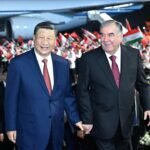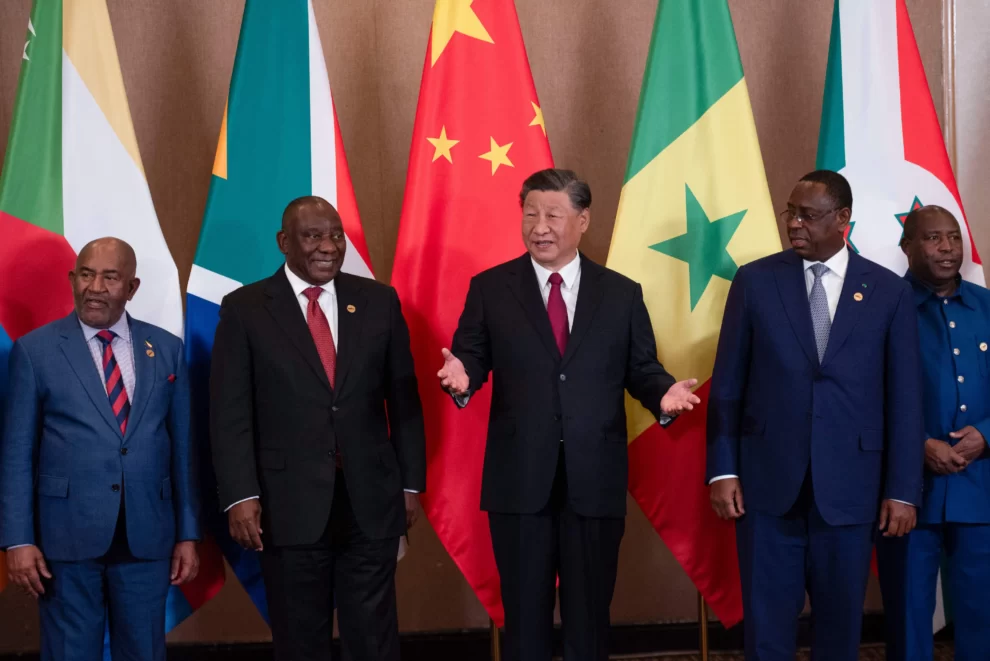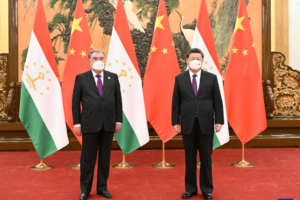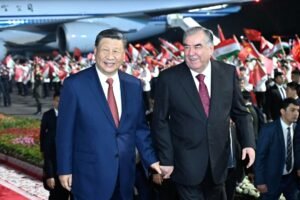China has suddenly turned a once-meaningless acronym — known as BRICS, for Brazil, Russia, India, China and South Africa — into an alphabet soup of nations eager to line up against the U.S., or at least to adopt an appearance of neutrality.
The rise of BRICS to the ranks of competitive groupings on a scale that may ultimately rival NATO, the North Atlantic Treaty Organization, and challenge AUKUS, for Australia, the United Kingdom and the U.S., fulfills the ambition of China’s President Xi Jinping for an effective counterweight to America’s drive to “contain” China.
Xi scored that success in a confab of the leaders of BRICS countries in the unlikely setting of Johannesburg, at which he joined in welcoming six new members to the group — all of strategic importance to both the U.S. and China in the battle for power, influence and markets.
Global Times, the English-language offshoot of People’s Daily, published by the Chinese Communist Party, reported that Xi said the inclusion of Argentina, Egypt, Ethiopia, Iran, Saudi Arabia and the United Arab Emirates, among 40 nations expressing interest, represented an “historic and a new starting point for BRICS cooperation” and “demonstrates the determination of the BRICS countries to unite and cooperate with other developing countries.”
BRICS is not a military alliance, but Xi clearly was elated by the possibilities in the wake of Washington’s determination to challenge Chinese inroads from the southern Pacific, across the Indian subcontinent and the Middle East to Africa.
The nations now drawn into BRICS all have special significance for America: Saudi Arabia and the UAE as sources of oil; Iran as an aspiring nuclear power at odds with America vis-à-vis Israel; Ethiopia and Egypt as African nations with close ties to other Islamic nations. Argentina, the lone new BRICS nation from South America, has long been looking for a way out of perpetual deep economic distress.
Contradicting reports that Argentina might be reluctant to cast its fate with BRICS, the Argentine ambassador to China, Sabino Vaca Narvaja, thanked “China and all the BRICS countries,” promising, “Together we are going to represent the voice of emerging countries.”
The reference to “emerging countries” suggested one of the main attractions of BRICS: the sense of members aligned against the power of America and other advanced nations. Indian Prime Minister Narendra Modi, at the BRICS get-together, said India “fully supports the idea of expansion of the membership of the BRICS and welcomes a consensus-based process.”
Modi’s enthusiasm for BRICS reflects its historic non-alignment between Russia, India’s biggest source of weapons, and the United States. Relations have much improved since the days when John Foster Dulles railed against “the immorality of neutrality,” but Washington remains frustrated by New Delhi’s ambivalence.
One dividend of the gathering was that Xi and Modi had a chance personally to patch up differences seen in border clashes beginning in 1962 in the high Himalayas and continuing sporadically. China has also upset India by building a road at altitudes of more than 15,000 feet from Tibet through dangerous passes down into Pakistan and a port on the Arabian Sea.
India’s foreign secretary, Vinay Kwatra, said Modi had underlined “the maintenance of peace and tranquility in the border areas.” China’s foreign ministry said that Xi and Modi “had a candid and in-depth exchange of views.”
Their discussion poured cold water on yet another grouping: the Quad, including India, Australia, Japan and America, in what the Americans had seen as a nascent alliance. While Modi has appeared happy to talk about mutual problems and issues with the others, he wants no part of an anti-China grouping with military overtones.
Xi’s success at the BRICS meeting came after he had canceled a speech that he was to have made at the opening session. In his first visit anywhere in Africa in five years, he seemed to have gotten what he wanted, while U.S. diplomats had to deal more gingerly than ever with nations on which Washington strives mightily to remain on friendly terms — e.g., India and Saudi Arabia.
Vastly complicating matters, Russian President Vladimir Putin in Moscow also showed a strong hand among BRICS leaders. He couldn’t be there in person, thanks to the International Criminal Court in the Hague issuing a warrant for his arrest for war crimes, but his recorded message came through loud and clear as he defended the blockade on grain exports from Ukraine, the breadbasket of Europe.
By imposing sanctions and freezing assets “of sovereign states,” he said, America and its NATO allies were “trampling upon all the basic norms and rules of free trade.”
Among BRICS leaders, there was no argument there. Xi, allied with Putin, built on BRICS as a potential bloc that would serve the mutual interests of all of them. For starters, none would support NATO in Ukraine.
Source : THEHILL











